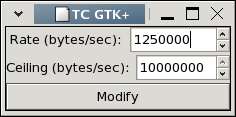While attempting to compile some software on my x86_64 FC4 system I ran into a strange problem. For some reason the compile was trying to link against an i386 library. My first thought was why are there i386 libraries on my x86_64 Linux installation? Well it turns out that OpenOffice is not 64-bit clean. So, in order to have OpenOffice in x86_64 FC4 all libraries on which OpenOffice depends must be present in i386 form. This leads to duplication since the rest of the system wants the x86_64 versions. Of course this wastes a bit of disk space but disks are cheap. What is more unfortunate is that loading the i386 version of OpenOffice requires a whole bunch of i386 libraries to be loaded into memory when x86_64 equivalents are already loaded.
Lately, I have been using Gnumeric and Abiword for my office application needs so I do not require OpenOffice. Thus, removing OpenOffice and all other i386 packages from my system was the simple solution to my library linking problems.
Gnumeric and Abiword are available in the extras repository, just run “yum install gnumeric abiword”.
